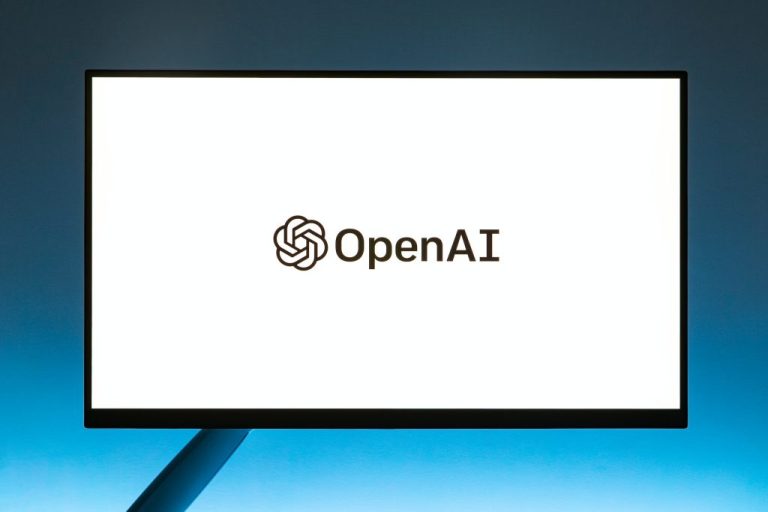Is the AI Act Pushing Europe Toward Financial Ruin?
Is Europe Killing Itself Financially with the AI Act?
Europe is actively working on legislation to manage artificial intelligence, prompting a mixed response. While European regulators are enthusiastic about these developments, opinions worldwide are divided regarding the AI Act’s potential effects. Some advocate for regulations to mitigate the risks associated with advanced AI technologies, while others argue that these regulations could hinder the European economy. The question remains: can we achieve both safe AI products and economic growth?
Preventing an Industrial Revolution
Joe Lonsdale, a notable figure in the U.S. media who frequently discusses AI, claims that the EU is obstructing a potential industrial revolution and is positioning itself as irrelevant to future global advancements. Lonsdale, who holds a degree in computer science and has co-founded multiple AI-focused companies, urges all businesses to adopt AI technologies now.
Addressing Concerns
Is this apprehension justified? There are valid reasons for caution to ensure that significant AI innovations do not exit Europe. Sam Altman, CEO of OpenAI, has previously warned that stringent regulations could push AI firms to relocate from Europe. While he intends to keep ChatGPT operational in Europe despite the AI Act, he does caution about the actions other companies may take.
The Case for AI Regulation
Altman himself supports the introduction of safety regulations for AI, advocating for clear stipulations that developers should satisfy before a product’s launch. His call for regulation could signal the need for Europe to pay close attention. The EU aims to be the first jurisdiction to implement a comprehensive set of AI governance rules, but they must navigate the challenges of crafting such policies in a largely uncharted arena, testing the regulations through expert feedback before the legislation is enacted in 2025.
A Bottom-Up Approach
The EU is also keen to avoid imposing regulations from above without adequate understanding. Instead, they are adopting a bottom-up methodology, involving existing companies and developers to help shape the standards for AI.
Global Perspectives on AI Regulation
While the EU champions its AI Act as a pioneering effort, other regions, such as the United Kingdom, are equally engaged in developing regulatory frameworks. The UK is keen to embrace AI technology while ensuring safety but without imposing penalties on firms that don’t comply. Instead, it endorses a set of five guiding principles for AI compliance. Such a strategy raises concerns about the balance between secure AI products and economic viability, as the UK aims to attract AI investments without mandatory regulations.
Only time will tell whether the AI legislation proposed by Europe will prove effective.
AI’s Influence in the Cryptocurrency Industry
The intersection of Artificial Intelligence (AI) and cryptocurrency is reshaping the digital landscape. AI technologies are being integrated into various aspects of the cryptocurrency sector, enhancing transaction security, predictive analytics, and market sentiment analysis. This transformation is driving greater efficiency and transparency, thereby making operations more robust and user-friendly.
The Emergence of Superintelligence
Sam Altman, CEO of OpenAI, has heralded the start of a new era characterized by superintelligent AI systems. These advanced algorithms hold the potential to revolutionize industries, including finance and investment. Their ability to process vast amounts of data could lead to smarter investment strategies and risk management within cryptocurrency markets.
Mistral AI vs. Big Tech
Magistral, a competitor in the AI field, is challenging established tech giants with its innovative reasoning model. This model promises to deliver enhanced decision-making capabilities, which could be vital for cryptocurrency trading platforms seeking to leverage AI for better performance.
Understanding AI in Blockchain
The concept of an AI blockchain is gaining traction as it embodies the integration of AI capabilities with blockchain technology. This fusion can lead to more efficient smart contracts and automated decision-making processes, ultimately benefiting users by reducing transaction times and improving trust in digital interactions.
Artificial Intelligence has been making headlines lately, with various developments shaping its landscape.
The AI Blockchain: Understanding Its Essence
The concept of an AI blockchain is gaining traction. But what does it represent? Essentially, it reflects the intersection of blockchain technology and artificial intelligence, which could enhance data security and integrity while ensuring transparency in AI-driven applications.
Apple’s AI Moves: Core Model Access for Developers
In a strategic move at the latest Worldwide Developers Conference (WWDC), Apple announced that it is granting developers access to its core AI model. This initiative is seen as a way to stimulate innovation and incorporate more advanced AI features into its products while maintaining a measured approach.
Legal Actions: Reddit vs. Anthropic
Reddit has initiated legal proceedings against Anthropic, alleging that the company utilized user data for training its AI models without proper authorization. This case raises significant questions about data privacy and ethical AI usage, highlighting the ongoing debate in the tech community regarding user consent and data rights.







